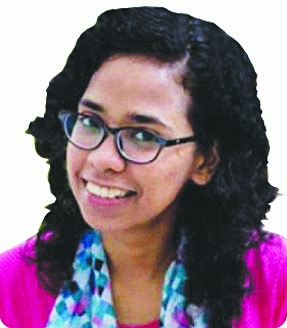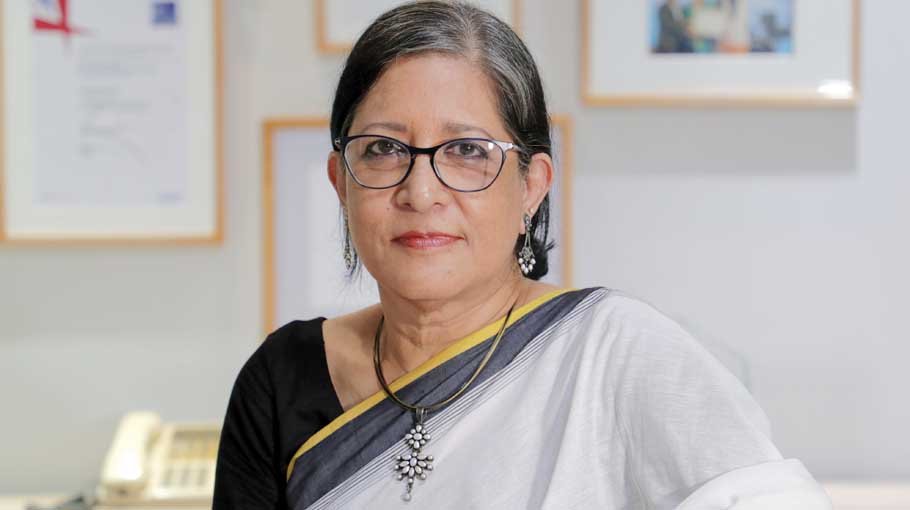‘COP26 exclusionary, more rhetoric than action’

This 26th Conference of Parties carries a lot of significance for a climate-vulnerable country like Bangladesh.
Farah Kabir, Country Director of ActionAid Bangladesh (AAB), shared her opinion about various issues related to climate change that need to be addressed, in an exclusive interview with the Bangladesh Post.
Although this COP was claimed to be ‘the most inclusive COP ever’, it has been sharply criticised by environmental activists because of many restrictions in terms of participation and so on.
Referring to the 26th Conference of Parties as an exclusionary COP, she said that they are still more rhetoric than action, which is disappointing.
“It’s very clear to all of us that this was not a COP where civil society was barely represented even to the level that they did previously. Every COP is so restrictive towards civil society that it’s a challenge to join. However, despite the barriers and obstacles, members of the civil society whoever managed to be in Glasgow, we celebrate them,” she said.
She went on to describe the issues of access, availability, vaccination and equity, and said that the information was not made available on time and the UK presidency kept changing on a weekly basis in terms of vaccine and quarantine guidelines.
While expounding her views on these issues, she highlighted how the entire process of UN is not inclusive.
“Wherever I have engaged with UN processes I have found that it’s not inclusive. They could have helped the civil society to join COP26. They could have worked with the UK presidency on a much stronger level,” she added.
Expressing disappointment over the participation of Global South she said, “Even people in Glasgow had to face difficulty to get access in many aspects. If the global leaders are talking about people, then why can’t people be there? Why are the delegations, UN and leaders from G20 so scared of its citizens and the people?”
The Chair of the Global Board of the Global Network of Disaster Risk Reduction (GNDR) mentioned how ActionAid has been promoting their issues to the international negotiation process and national development agenda.
“ActionAid has been engaged with the community on the ground as a development organisation upholding human rights based approach in terms of its engagements. Over the years, it has been supporting children and young people for promoting their education, their parents for livelihoods and so on. To address the challenges of climate change, at the beginning we tried to enhance community led adaptation, putting marginalized women at the center of our work, to help them face frequent flooding, cope with sea-level water rising and extreme weather and its unreliable pattern,” she went on to describe.
Realizing the difficulties of climate change on the frontline communities, ActionAid Bangladesh started taking these issues to the national and international level through campaigning and policy advocacy.
“From Bali Climate Change Conference, we started engaging with the COP process. We are not scientists, but we are human rights activists. Since the beginning, we thought the best thing would be to ensure the participation of the frontline community members in the COP process and create an opportunity for them to speak to the global leaders directly. Therefore, we took our community participants from Bera of Pabna to Bali at the COP conference. That trend has continued in ActionAid. From our working approach, we learn and hear from the communities and take their voices as well as concerns at the international level,” she explained.
Regarding their achievement, she said that their proposal to the government to set up a trust fund was adopted.
“We were also advocating for a legislation regarding disaster management. We urged the government that a ministry be set up for it. It took 14 years, however, we were successful. We got the Disaster Management Act and a separate ministry,” she said.
In a reply to a query regarding the country’s demand at COP26 she said, “The six-point agenda that Prime Minister Sheikh Hasina has presented at the COP26 is what the civil society, development practitioners, organizations like us have been asking for the last six-seven years.”
She said that the recovery plan is at risk until the global leaders really take action.
“Bangladesh is trying at the national level to take as many actions as possible, however, how effective is it going to be if the global leaders don’t commit?” she said.
Regarding the transition in power sector she suggested that the transition should be planned.
“Our emission record is nominal but let us not repeat the mistake that other countries have done. For us, it’s important to invest in alternative energy; to look at the scopes that are available. We need to invest in rainwater harvesting and hydropower along with solar power.”
She continued, “The biggest emitters of the country have to work on making this transition. Some of these emitters are going to be from the corporate sector because of the technology and energy they use. The government should focus on the corporate sector, public enterprises and transport sector.”
When asked about the supports required to tackle loss and damage, she said “The global leaders should listen to the communities, young people and women to design and plan for the future incorporating their suggestion, whether it’s in the area of agriculture, energy or infrastructure development.”
Putting emphasis on anticipatory actions she further said that there should also be a very clear risk and vulnerability assessment.
“We need a change in mindset, system, whole planning and designing and a serious commitment,” she concluded.



